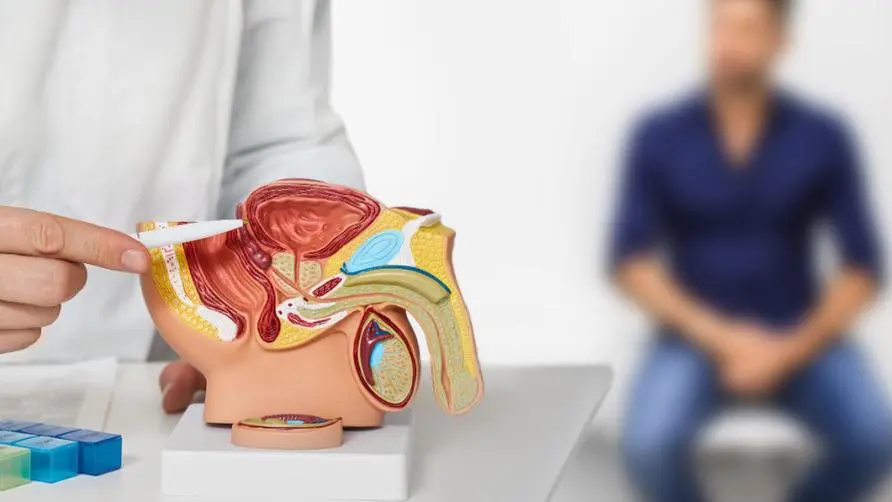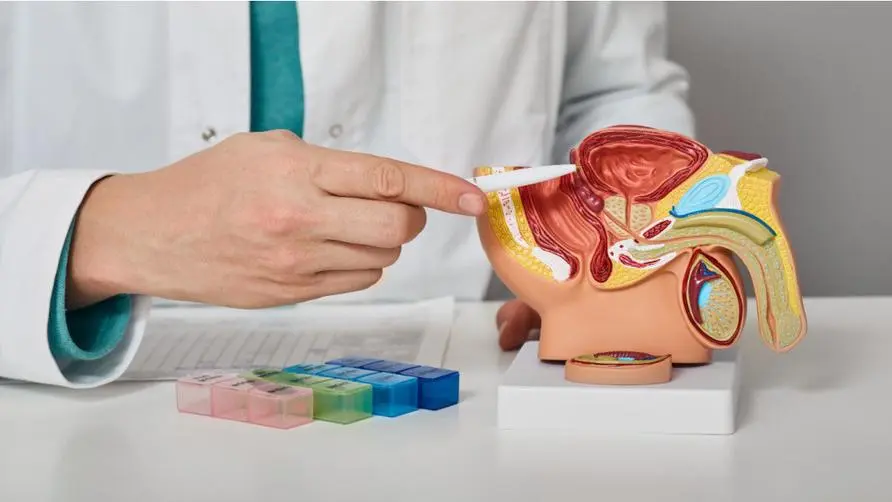What are the signs of prostate cancer? Does an elevated PSA indicate cancer? Study: Eating more fruits and vegetables lowers prostate cancer risk

Is a high PSA score a sign of prostate cancer without obvious symptoms?
Early-stage prostate cancer has almost no obvious symptoms. When hematuria, frequent urination at night, difficulty urinating, weak urine flow, painful urination, and waist and pelvic pain may be signs of prostate cancer, they may also be caused by prostate infection. Or caused by prostate hypertrophy. The tools currently used clinically to detect prostate cancer are the detection of PSA-prostate specific antigen concentration in the blood and digital anal examination.
However, if an elevated PSA level is found during a test, does that mean you have prostate cancer? Harvard Medical School explained in a special report that PSA is a protein secreted by normal or cancerous tissue in the prostate and can be detected through blood testing. For ordinary healthy men, a PSA score below 4ng/mL indicates a very low risk of cancer; 4-10ng/mL indicates a gray area with a higher risk; a PSA score above 10ng/mL indicates a very high risk and should be treated with special care Pay attention to tracking.
Prostate hypertrophy can also affect PSA, which can only be confirmed by biopsy
However, high PSA is not necessarily related to the prostate, and PSA values are usually tested multiple times to assess risk. Having had sexual intercourse in the past 48 hours may cause a brief spike in PSA. The “prostatic hypertrophy” that occurs in most men as they age will also affect PSA values. In addition, urinary tract infection, prostate inflammation, prostate examination, etc. may cause the PSA score to rise.
In addition, PSA will exist in the blood in two forms, one is PSA bound to protein, and the other is “free PSA” that is not bound to protein. When the free PSA is less than 15% or less, may indicate a higher risk of cancer.
If a man finds that his PSA score is high during the examination, his doctor may schedule a second test four weeks to six months later. In general, an abnormal PSA score does not necessarily mean that you have prostate cancer, but only indicates a possible higher risk of prostate cancer. Further biopsy is still needed to determine whether it is cancer.
In addition to biopsies, MRI scans can also help diagnose prostate cancer. The US FDA recently approved two imaging tools that use positron tomography to detect prostate cancer through the injection of radioactive reagents. Because cancer cells absorb amino acids faster than normal cells, they bind to the components in the radioactive reagent and show up in CT scan images.
Can eating more fruits and vegetables prevent prostate cancer? Healthy lifestyle is the key
Three studies released by the American Urological Association in 2021 found that men who eat more vegetables and fruits have a smaller risk of rising PSA scores, and PSA is one of the risk indicators for prostate cancer. Another study that tracked 27,000 people for 28 years showed that men who consumed a more plant-based diet were less likely to develop prostate cancer. There is also less chance of developing advanced prostate cancer.
However, these observational studies can only be used as a reference for correlation and cannot be concluded as a cause-and-effect relationship. But for men, increasing a plant-based diet can also bring benefits such as blood pressure, heart health, weight control, and reduce the problem of erectile dysfunction in men. Men are reminded that the correct concept when it comes to prostate cancer is that “prevention is better than cure.” Men should remain non-smokers, exercise regularly, eat more fruits and vegetables, and maintain their bodies in optimal health.
source:
〈Answers to prostate cancer questions〉
〈A plant-based diet may protect against prostate cancer and ED〉
〈ASSOCIATION OF PLANT-BASED DIETARY PATTERNS WITH PROSTATE CANCER RISK〉





